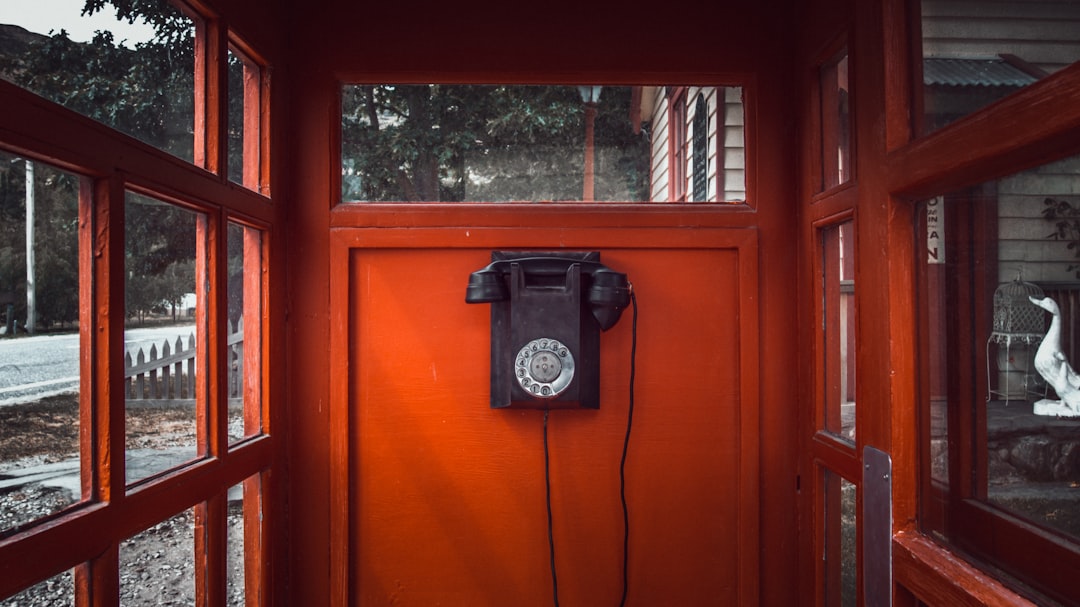Spam calls from automated systems are a common nuisance in West Virginia. To protect yourself, recognize red flags like unknown numbers or urgent requests. Block numbers, report them to your provider, and consult spam call law firms specializing in TCPA law. Verify callers' identities, document incidents, and avoid engaging with dubious law firms. Register on the National Do Not Call Registry and explore state-specific do-not-call lists. Legal experts can guide blocking, reporting, and taking action against violators, reclaiming your phone line from spam. For persistent local calls, consult spam call lawyers for tailored guidance and legal protection under TCPA laws in West Virginia.
Receiving a spam call from a local number can be unsettling. This guide helps you navigate this nuisance, offering insights into identifying spam calls, understanding legal protections like the TCPA and West Virginia state laws, and practical steps to take immediately. Learn how to protect your privacy and explore options for seeking legal advice from a West Virginia-based Spam Call Law Firm or TCPA Lawyer, ensuring you know exactly what to do to stop these unwanted intrusions.
Understanding Spam Calls: Identifying Red Flags
Spam calls can be a nuisance and even a potential danger, especially when they involve fraudulent or illegal activities. In West Virginia, recognizing and understanding these red flags is essential to protect yourself from potential legal issues. These calls often originate from automated systems designed to blast out a large volume of messages, targeting as many people as possible. Common indicators include unknown numbers, repetitive or automated voices, or urgent requests for personal information.
If you receive such a call, don’t panic but do be cautious. West Virginia has specific laws in place to combat spam calls, including those from local numbers. You can take proactive measures like blocking the number, reporting it to your service provider, and seeking legal advice from a firm specializing in TCPA (Telecommunications Consumer Protection Act) law. Engaging with or providing any information to suspected spam callers is generally advised against; instead, consult with lawyers experienced in handling such cases to understand your rights and options under West Virginia’s Spam Call laws.
The Legal Framework: TCPA and West Virginia Laws
In the United States, the Telephone Consumer Protection Act (TCPA) serves as a key legal framework to combat spam calls and protect consumers’ privacy. This federal law, enacted in 1991, restricts telemarketers’ practices, including unsolicited calls made using automated dialing systems or prerecorded messages. In West Virginia, state laws further reinforce these protections. Residents of West Virginia who receive spam calls have legal recourse through the TCPA and can seek relief from both state and federal authorities.
If you’ve encountered spam calls from local numbers in West Virginia, it’s advisable to consult a spam call law firm or lawyers specializing in TCPA cases based in the state. These professionals can guide you on how to stop spam calls effectively, help you understand your rights, and represent you if legal action is necessary. Understanding the legal framework and seeking expert advice are crucial steps to combat these unwanted interruptions and ensure compliance with West Virginia’s spam call laws.
Steps to Take When You Get a Spam Call from a Local Number
If you’ve received a spam call from a local number in West Virginia, don’t panic but do take action. The first step is to verify the caller’s identity and purpose. Check if the number is listed as a known spammer or scammer on public records or consumer protection websites. Many tools available online can help you identify suspicious calls.
Next, document the incident by noting the date, time, and any specific details about the call. If it’s a law firm contacting you about a supposed violation of the Telephone Consumer Protection Act (TCPA), don’t engage unless you’re certain of their legitimacy. Contacting or responding to spam calls can sometimes confirm your number as active to these entities. Instead, consult with a trusted Spam Call lawyer in West Virginia who specializes in TCPA cases. They can guide you on the best course of action, whether that involves blocking the number, filing a complaint with relevant authorities, or pursuing legal recourse if necessary.
Protecting Your Privacy: Options for Preventing Future Spam Calls
Protecting your privacy and stopping unwanted spam calls is a priority, especially with the prevalence of such calls in today’s digital age. Fortunately, there are several steps you can take to mitigate these intrusive phone calls in West Virginia. One effective method is to register your number on the National Do Not Call Registry. This federal list helps prevent telemarketers from calling residential telephone numbers. You can easily sign up online or by phone through the Federal Trade Commission (FTC) website. Additionally, many states have their own do-not-call lists, so be sure to check if West Virginia offers such a service.
For more targeted protection, consider consulting with a spam call law firm or lawyer specializing in TCPA (Telecommunications Consumer Protection Act) cases in West Virginia. These legal experts can guide you on blocking and reporting spam calls effectively. They can also assist in taking legal action if the calls violate federal or state laws. By combining registry enrollment, technological tools, and legal aid, individuals in West Virginia can reclaim their phone lines from relentless spam callers.
Seeking Legal Advice: Working with a TCPA Attorney in West Virginia
If you’ve received a spam call from a local number in West Virginia, it’s important to know your rights and options. In many cases, these calls violate the Telephone Consumer Protection Act (TCPA), a federal law designed to protect consumers from unwanted telemarketing calls. If you’re facing persistent or harassing spam calls, seeking legal advice is crucial.
Working with a TCPA attorney in West Virginia who specializes in spam call laws can help you understand your options for how to stop spam calls. These experts can guide you through the process of filing a complaint with regulatory agencies and taking legal action against the culprits behind the unwanted calls. They’ll ensure that your rights are protected and help you secure damages if applicable, providing a more robust solution than DIY methods. A reputable spam call law firm in West Virginia will have the expertise to navigate these complex laws, ensuring the best possible outcome for their clients.






